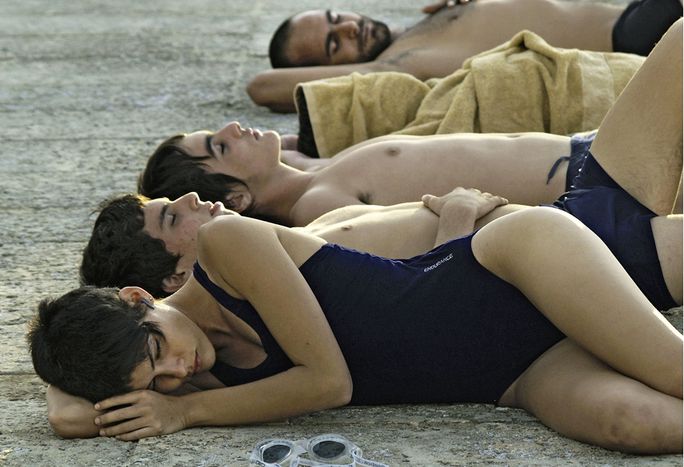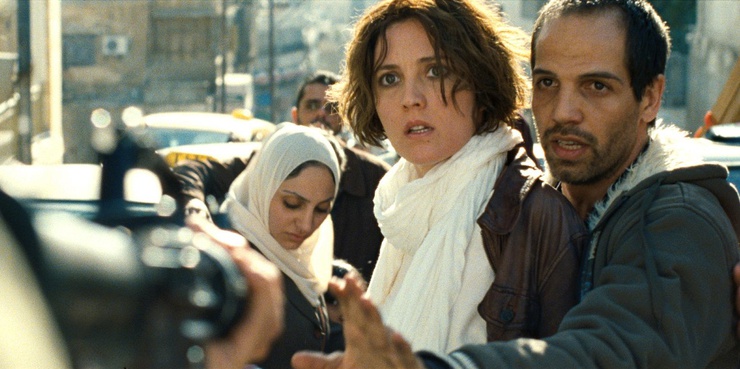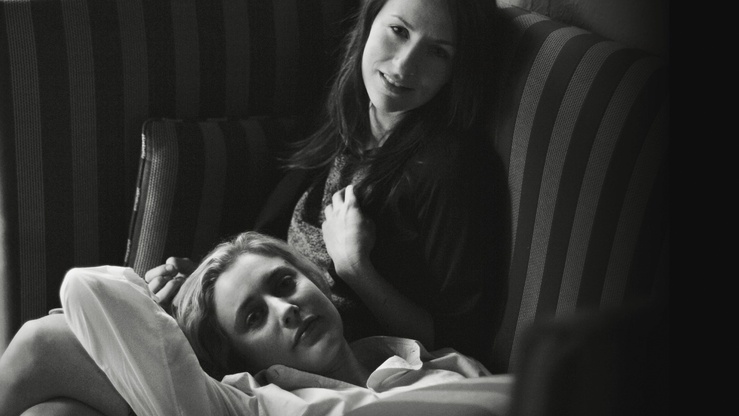
Top three female protagonists from Berlin film festival 2013
Published on
Translation by:
 Danny S.
Danny S.
The Berlin film festival's director Dieter Kosslick has always recruited strong female characters for the competition. Although Catherine Deneuve, Nina Hoss and Juliette Binoche are used to the dazzling spotlight, other lesser-known names also know how to portray lifelike and convincing characters
The combative doctor
Chloé's (Evelyne Brochu) delicately shimmering skin and fine features could lead anyone to exhilaration. At the beginning of the Canadian film Inch'Allah (2012), the young and slender woman is seen meandering at night through Tel Aviv with her Israeli friend Ava and a bottle of beer in hand. They amuse themselves just as carefree students are known to do.
We learn that Sophie works as a doctor for the UN at a women's clinic in Palestinian territories. Ava is a border patrol soldier who scrutinises passports at checkpoints. Both are helpless figures of a political situation that has forced them to have to constantly deal with unjust and hopeless situations. Ava hates how her friends harass Palestinians without reason, while Chloé is made aware of the injustices that take place behind the oversized wall.
'Both are helpless figures of a political situation that has forced them to have to constantly deal with unjust and hopeless situations'
It's through Rand, a pregnant patient whose brothers don't survive despite wearing their Superman costumes, that she is made aware of the worries and fears of the West Bank inhabitants. On Chloé travels, she is followed by a camcorder through narrows streets where the miserable daily lives of the Palestinians is revealed as if in a documentary. The dramaturgy of Anaïs Barbeau-Lavalette's film is incredibly suspenseful. Although Chloé is aware of both sides of the conflict, there is nothing she can do about it. She is torn back and forth between both sides until finally, in the end, everything falls apart.

The dancer in search of herself
Frances (Greta Gerwig) is in her late twenties and literally stumbles through the black-and-white American film Frances Ha (2012). Despite her problems, Frances never loses her unique, self-deprecating humour. Her body is far too clumsy, too 'awkward', for her to become the professional dancer in New York that she has always dreamed of. But even in other ways life doesn't turn out in her favor. Her relationship is over, her best friend breaks the lease of their affordable apartment, the dance company wont allow her to perform, and her interesting new roommate deems her to be 'undateable'.
Frances finds herself in the midst of a typical quarter-life crisis, having to define herself, figure out how to earn money, and find a partner to have a life with. She runs, stumbles, falls down, and always gets back up. It takes a failed trip to Paris, a boring administrative job at the dance academy and her own, but affordable apartment in a remote district before Frances is transformed from a clumsy duck into a choreographic swan.

Noah Baumbach's charming comedy is mainly characterised through its Woody Allen-esque situations and dialogues, and its stunning heroine, for whom the audience can't help but feel embarrassed for at certain times. The film lies close to the hearts of those who have had to struggle with their lives, or who can still remember the interim between student life and the beginning of one's career.
The woman who knows every trick in the book
The strength of the beautiful Diana (Mónica Molinet) in the film The Swimming Pool ('La Piscina', Cuba/Venezuela 2011), lies in her ability to manipulate the men around her. It's never for a particular purpose, but simply because she can. The one-legged young woman is a faster swimmer than all of the male members of the small group that meets every morning at the pool with their coach. All have a physical disability; the overweight Dany has down-syndrome, the weak-willed Rodrigo suffers from a walking disability, and the sullen Oscar hesitates to speak.
Carlos Machado Quintela stages his debut film like a chamber play, in that the protagonists never leave the protected and isolated pool area, with the exception of a brief lunch break. The visual lines, which are made up of walls and swimming lane dividers, shelter the four protagonists from the outside world. Through its quiet and apathetic ambience, the film provides the perfect setting for animosities, rivalries and unrequited love affairs to simmer in the summer heart. Like a tiger that's ready to pounce on its prey, Diana allows her accumulated aggression to burst near the end of the film. The audiences at the 2013 Berlin film festival were wincing as they realised that none of these three women characters should be underestimated.
Images courtesy of © Berlinale Filmstills
Translated from Berlinale 2013: Frauen, die aus der Reihe tanzen


